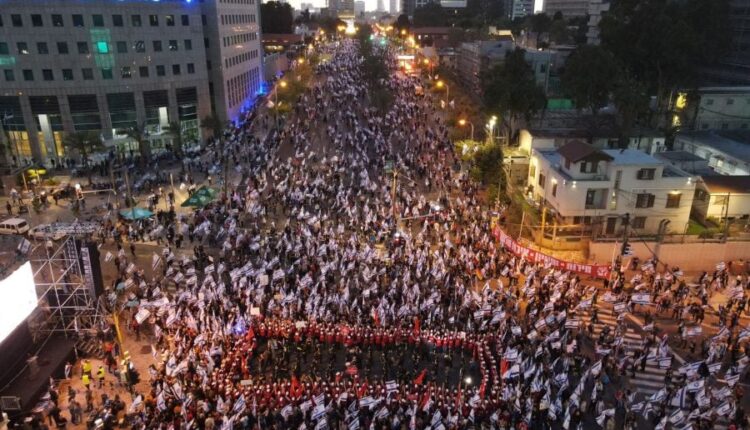The government’s judicial reforms, which thousands of Israelis see to be an assault on democracy, prompted them to go to the streets of Tel Aviv once more late on Saturday.
The nation’s protests entered their fifteenth week in a row after Prime Minister Benjamin Netanyahu declared a “pause” on the measures that were dividing the country on March 27.
In a sea of Israeli flags waved by protesters, signs with the words “Let’s save democracy” were seen. The use of smoke bombs and flares was also recorded by AFP journalists.
Smaller demonstrations were also held in Modiin, Israel, outside Justice Minister Yariv Levin’s house, and in Haifa, a port city in the north.
As in several past protests, the Israeli media reported that tens of thousands had attended.
We are defending our democracy. One protester, Nadav Tamir, 61, told AFP that there was no alternative country for them to live in.
I didn’t want to come today, but my sister told me, “We have no choice,” and it’s true,” said Karen Baron, a 45-year-old psychotherapist from Tel Aviv. We are unable to relax our guard; we have no choice. Our nation must be protected.
The measures would limit the Supreme Court’s power and allow legislators more control over judicial selection.
The amendments, according to Netanyahu’s administration, are necessary to counterbalance the authority between the legislature and the judiciary. The government is a coalition of Netanyahu’s Likud party and extreme-right and ultra-Orthodox Jewish allies.
The protest took place on Saturday, one day after the US rating agency Moody’s declared that Israel’s outlook had been changed from “positive” to “stable”.
As seen by recent events surrounding the government’s proposal to revamp the nation’s court, it was stated that the change “reflects a worsening of Israel’s governance.
According to Moody’s, “mass demonstrations have forced the government to pause the legislation and seek dialogue with the opposition, but the way the government has attempted to implement a broad reform without seeking broad consensus points to a deterioration of institutional strength and policy predictability.”
Read Also: 27 killed in clashes between the army and paramilitaries in Sudan, according to doctors’ union


